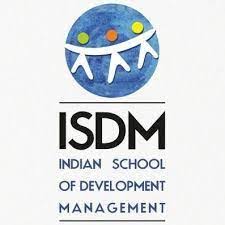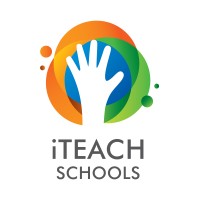
Website UNDP
Background
UNDP has been working in India since 1951 in almost all areas of human development. Together with the Government of India and development partners, we have worked towards eradicating poverty, reducing inequalities, strengthening local governance, enhancing community resilience, protecting the environment, supporting policy initiatives and institutional reforms, and accelerating sustainable development for all.
With projects and programmes in every state and union territory in India, UNDP works with national and subnational government, and diverse development actors to deliver people-centric results, particularly for the most vulnerable and marginalized communities. As the integrator for collective action on the Sustainable Development Goals (SDGs) within the UN system, we are committed to supporting the Government of India’s national development vision and priorities and accelerating the achievement of the SDGs for the people and the planet.
UNDP India’s current Country Programme, 2018-2022, is in its final year of implementation. Our new Country Programme (2023-2027), which comes into effect in 2023, builds on our prior work and aims to provide an integrated approach to development solutions in three strategic portfolios:
- Strong, accountable and evidence-led institutions for accelerated achievement of the SDGs
- Enhanced economic opportunities and social protection to reduce inequality, with a focus on the marginalized
- Climate-smart solutions, sustainable ecosystems and resilient development for reduced vulnerability
- South-South cooperation, gender equality and social inclusion are promoted across the pillars. The programme is supported by a framework of renewed partnerships and blended finance solutions, strategic innovation and accelerator labs, and data and digital architecture.
G-20
The G20 is a strategic multilateral platform connecting the world’s major developed and emerging economies. The G20 holds a strategic role in securing future global economic growth and prosperity. Together, the G20 members represent more than 80 percent of world GDP, 75 percent of international trade and 60 percent of the world population.
The UN System has collaborated closely with the G20 since its inception in the aftermath of the global financial crisis in 2008, providing expertise on economic and development issues at the invitation of successive G20 presidencies. UNDP’s engagement with the G20 has been centred around the implementation of the 2030 Agenda for Sustainable Development and the realization of the G20 Action Plan on the 2030 Agenda. India joined the troika (represented by the previous, current and subsequent G-20 Presidency) in December 2021 and will assume the Presidency of the G-20 following the Leader’s Summit during Q4 2022.
Digital Public Infrastructure (DPIs)
As the world enters the third year of the COVID-19 pandemic, inclusive digital public infrastructure (DPI) has emerged as a key mechanism to transform service delivery and increase resilience for future crises. Digital public goods (DPGs) are rapidly becoming indispensable digital cooperation tools, helping countries shorten their learning and adoption curve as they build DPI. From cash transfers and food distribution to tech-led models of education and vaccine delivery, the last decade has seen a surge in the digitalization of public and private sector services. DPI systems have become critical to enabling meaningful delivery of public and private services, and underpinning the achievement of a range of SDGs, including poverty reduction, financial inclusion, and climate resilience.
UNDP is looking to onboard a DPG Specialist (G20) (Consultant) who will work closely with the UNDP India Country and UNDP’s Global Digital Office on supporting efforts particularly around India’s G20 Presidency.
Duties and Responsibilities
The primary responsibility of the Consultant is to support three streams of work around UNDP’s engagement on DPIs/ DPGs with the G20 Presidency:
o – Support in convening ongoing thinking around the design and launch of a Centre of Excellence that can provide meaningful support to Low and Middle Income Countries (LMICs) in implementing Digital Public Infrastructure:
o – Carry out a high level, but informative assessment of the relevant global centers of excellence to recommend options with a focus on ensuring responsiveness to needs, neutrality of objectives.
o – Support the design for a potential CoE on DPGs that could be based in India, this would also involve support for development of TORs of other agencies/ individuals that would need to be onboarded to support more detailed design.
o – Identifying and consulting with appropriate stakeholders across think-tanks, academic institutions, multilateral institutions and government. This could also involve bringing together stakeholders for dedicated convenings around CoE ideation.
o – In collaboration with key country partners such as iSpirt, ORF, Aapti and Gateway House, design and conduct peer exchanges with DPGA country members, with a view to institutionalize learnings into country strategies:
o – Based on guidance from UNDP’s Digital Office, carry out review of previous convenings on the subject including those carried out by the World Bank, the Better than Cash Alliance, BMGF and others to identify any gaps or areas for further discussion.
o – Develop concept notes, presentations and briefs for convenings, with a focus on concrete outcomes, dedicated to DPIs/ DPGs in the context of G20 and South-South Cooperation.
o – Identify appropriate speakers and focal points who are most suitable to participate, contribute substantively to the discourse.
o – Where needed, brief any representatives/ delegations to support their preparation.
o – Support to India’s G20 Presidency to advance and mainstream the DPI and DPGs through thought leadership that globalizes India’s experiences:
o – Based on informed insight into G20 process and India’s upcoming Presidency, develop a detailed plan of support on how DPGs could be mainstreamed, the potential ways in which UNDP can support and specifically focus on how India’s leadership in DPI/ DPGs can be shared globally
o – Support UNDP leadership In 4 short written pieces (1,500 – 2,500 words each) for an external audience aligned to the three work streams, these would be used by UNDP. Themes Include:
– The India Story Goes Global: DPGs have been key to the meteoric growth of Digital India. The scope, scale and ambition of its digital infrastructure have also fuelled India’s digital partnerships with countries seeking to build DPIs of their own. With the G20 presidency, India has the opportunity to shape the norms and standards that will govern DPGs.
– Across Borders: Learnings from DPI Projects: There are numerous efforts to build DPGs but not much knowledge exchange. Can the G20 build and sustain platforms for knowledge sharing (including facilitating opportunities for collaboration outside of the G20 membership)?
– DPGs and Digital Sovereignty: Robust DPIs have proven to be instrumental in tiding economies and societies through crises, as demonstrated by the COVID pandemic. As such, DPIs are viewed increasingly as essential services and infrastructure, akin to electricity or public transportation.
– Public-private Partnerships for DPIs: different countries have different models and roles of both. What has worked and where? What were the key enablers in the ecosystem – a clear national strategy, tech talent, government incentives etc?
o – Develop/ substantively contribute to TORs around a flagship publication on DPIs/ DPGs, that will be co-developed with other institutions and the G20 Secretariat, linked to India’s G20 Presidency.
o – Make contributions for certain sections of the proposed publication on DPIs/ DPGs.
o – Coordination related responsibilities
o – Consultant will be expected to liaise closely with colleagues based in UNDP’s Global Digital Office.
o – Consultant will be expected to coordinate any in-person visits and interactions (in-person and virtual) by UNDP Senior Advisors.
Competencies
- Analytical skills: Able to synthesize large sets of inputs and data to form coherent outputs
- Ability to effectively and efficiently interact with senior members and stakeholders
- Must be detail-oriented
- Communication skills: Able to communicate clear ideas across a variety of mediums
- Writing and presentation skills: Able to produce high quality reports and presentations
- Team skills: Able to work independently as well as in teams
- Great organizational and time-management skills
Required Skills and Experience
Academic Qualification:
• Degree (Master’s or advanced degree is preferred) in Computer Science, Information Technology, Engineering, Business Administration, Public Policy/ Administration, Management or Innovation or in other relevant areas.
Professional Experience:
• Essential: At least 5 years of experience in the tech/ IT sector, or with other institutions, including the private sector/ government/ multilateral institutions, provided significant exposure to DPI/ DPGs are demonstrated through CV.
• Preferred: Demonstrated experience in development of written documents, policy papers, white papers and/ or ministerial statements to the extent possible related to DPIs/ DPGs (links should be included in CV).
• Preferred (but not essential): Experience should include demonstrated instances of engagement (contributing to, participating in or leading discussions) with multilateral forums such as (but not limited to) the G20, G7, NGFS, BRICS, ASEAN
Language Requirement: English
Evaluation Criteria
The award of the contract shall be made to the individual consultant whose offer has been evaluated and determined as Responsive to the requirement. Having received the highest score out of a pre-determined set of weighted technical and financial criteria specific to the solicitation.
Only candidates obtaining a minimum of 49 points (70% of the total technical points) would be considered for the Financial Evaluation;
Technical Criteria weight – 70%
Financial Criteria weight – 30 % (only candidates who score a consolidated 70% in the technical criteria and interview would be invited to submit financial proposals)
Technical Criteria (70% of the total evaluation)
i. Criteria 1: Prior Experience (40%)
a. At least five years of experience in technology/ IT, private sector, government or multilateral setting with demonstrated exposure to DPIs/ DPGs – 25%
b. Master’s / Advanced degree in a Computer Science, Information Technology, Engineering, Business Administration, Public Policy/ Administration, Management or Innovation or in other relevant areas. – 15%
ii. Criteria 2: Experience in written documents/ thought leadership around DPIs/ DPGs (or related areas) (30%)
a. Demonstrated experience in development of written documents including (either directly on DPIs/ DPGs or related topics including digital transformation, digital technologies), issue briefs, opinion pieces, policy papers and/ or ministerial statements. Exhibited through a minimum of 5 instances/ credentials – 30% (Please note UNDP reserves the right to request that these be shared, if readily accessible links are not available or referenced).
Submission of Proposal
Financial Proposal: Technically qualified consultants will be requested to submit their lump sum rate i.e. consultants who score more than 70% i.e. 49 marks with respect to the above-mentioned evaluation criteria (which includes both the technical and the interview). Consultant should not specify their consultancy fee on their CV or with the submission. The CV will not be evaluated further in case the consultant submits the same. When submitting CVs, candidates are requested to submit a document that is clearly responsive to the technical evaluation criteria.
Notes:
Miscellaneous charges i.e. internet, phone, relocation charges, local travel etc. would not be reimbursed separately
To apply for this job please visit jobs.undp.org.





